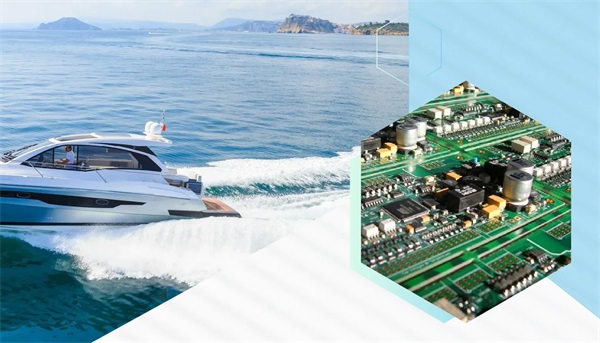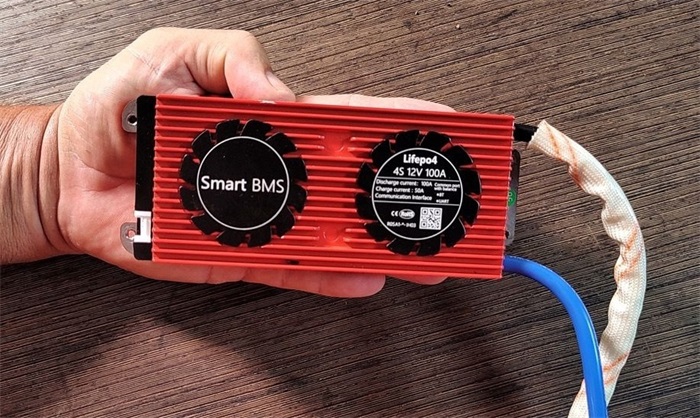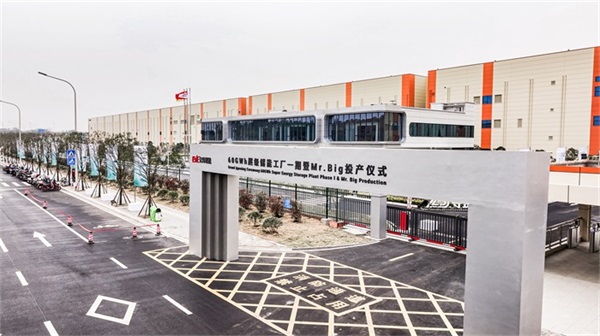Battery Management System for Boat: Decoding Its Importance and Key Technologies

Lithium-ion batteries ensure the proper functioning of critical systems, whether you’re using them in various applications or as a backup power source. When these batteries are in operation, the last thing you want to encounter is a safety hazard. Additionally, considering the high cost of lithium-ion batteries, you need a system that not only protects your investment but also guarantees the safety of the batteries. A Battery Management System (BMS) ensures that your batteries operate safely, efficiently, and reliably.
As the application of lithium batteries continues to expand, they are becoming the preferred choice for an increasing number of customers in the marine industry. This is because the most commonly used power system for ships today is the diesel-powered system, which comes with numerous challenges. As a result, electric boats are gradually replacing traditional fuel-powered vessels, making this the inevitable trend for the future. The Battery Management System for Boat (BMS), as the "brain" of the boat's battery system, plays an indispensable role in modern vessels, especially in electric boats, hybrid boats, and autonomous ships.
The Importance of Battery Management System for Boat
BMS is an important part of Li-ion battery electric boats. A good BMS acts as a guardian to prevent thermal runaway and fire from the battery. By monitoring and balancing the voltage of the boat’s battery, BMS prevents the charging and discharging process from producing overcharging and deep discharging. It ensures that the battery delivers optimal performance during operation. At the same time, it optimizes battery performance and maximizes capacity by managing energy and providing accurate SOC and SOH estimation. In this way, the vessel can extend its range and improve endurance. There are also fault detection functions in the BMS, which can monitor battery problems and take countermeasures on time. The BMS protection boards provide temperature and short-circuit protection for the batteries, which extends the service life of the batteries and ensures the safety of the boat. Through the optimization and research of BMS, the charging and discharging efficiency of the battery can be improved, the energy loss can be reduced, and the performance of the whole boat system can be improved.

Battery Management System for Boat (BMS)
Key Technologies of Battery Management System for Boat
An excellent BMS (Battery Management System) should incorporate several key technologies, including battery state monitoring, charge and discharge control, fault diagnosis and protection, intelligent balancing methods, and thermal management.
1. Battery State Monitoring
The battery management system for boats can monitor the battery with precise data. By collecting and analyzing real-time data on voltage, current, and temperature, it can accurately estimate the remaining charge, available capacity, and health status of the battery, while detecting potential issues promptly. These methods maximize the performance of the battery pack throughout its lifecycle.
2. Charge and Discharge Control Technology
The charging process of boat batteries directly impacts their lifespan and safety. Therefore, the BMS needs to adjust the charging power based on the real-time characteristics of the power battery, temperature, and the charger’s power capacity to ensure safe charging. Furthermore, to ensure safe and economical operation of electric boats, the BMS should regulate the power output of the battery, energy recovery during regenerative braking, and avoid overcharging/over-discharging. It should also manage the direction of energy flow within the battery to ensure optimal output performance. During the charging and discharging process, the system continuously collects information on the battery pack’s terminal voltage, temperature, charge/discharge current, and overall pack voltage to prevent overcharging or over-discharging.
3. Fault Diagnosis and Protection Technology
The battery safety protection function primarily involves fault diagnosis and safety control of the battery pack. Faults that the BMS needs to diagnose include overvoltage, undervoltage, overcurrent, overtemperature, short circuits, insulation faults, and failures in sensors, actuators, and controllers. Upon detecting a fault, the BMS should issue a warning and take timely corrective actions to ensure the safety of the electric boat.
4. Intelligent Balancing Method
Battery balancing refers to the equal charging and discharging of individual cells within a battery pack. Inconsistent battery performance can lead to imbalances and inefficiency. Battery balancing methods ensure that each cell in the pack reaches a balanced and uniform state. This technology is divided into active balancing and passive balancing. It increases the capacity of the battery and makes it an essential component for long-term marine transport.
5. Thermal Management System
The operation of batteries is influenced not only by environmental temperature but also by the heat generated during charge and discharge cycles. In marine environments, temperature regulation and heat dissipation are critical, as extreme conditions can lead to thermal degradation. Therefore, the BMS urgently requires an integrated battery thermal management module. This system can determine the intensity of heating or cooling based on the temperature distribution within the battery pack and the charging/discharging requirements, ensuring the battery operates at the optimal temperature and maximizes its performance.
As the maritime industry gradually shifts toward green, environmentally friendly, and low-carbon emissions, the application of boat battery systems is becoming more widespread, and the role of BMS is becoming increasingly important. At the same time, the technology of BMS will continue to evolve, and its position in boat battery systems will become even more prominent. With the application of more intelligent and automated technologies, future boat battery management systems will be more efficient, precise, and secure, providing strong technical support for the sustainable development of the shipping industry.

